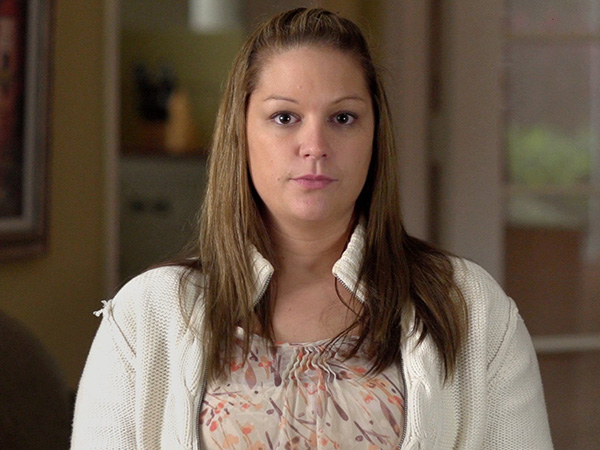

Military sexual trauma (MST) refers to sexual assault or sexual harassment that happens during military service. MST happens to men and women. Learn how MST can affect Veterans and VA resources available to help.
Reading time: minutes
MST is the term used by the Department of Veterans Affairs (VA) to refer to experiences of sexual assault or sexual harassment that a Veteran experienced during their military service. VA is strongly committed to ensuring that Veterans have access to the help they need in order to recover from MST.

“Therapy really helped me understand that it really wasn't my fault." ”
U.S. Marine Corps
2003-2007
MST includes any sexual activity during military service where a Veteran was involved against their will. They may have been:
Other experiences that fall into the category of MST include:
The identity or characteristics of the perpetrator, whether a Veteran was on or off duty at the time, and whether they were on or off base at the time do not matter.
VA's national screening program, in which every Veteran seen for health care is asked whether they experienced MST, provides data on how common MST is among Veterans seen in VA.
National data from this program reveal that about 1 in 3 women and 1 in 50 men respond "yes," that they experienced MST, when screened by their VA provider. Although rates of MST are higher among women, because there are many more men than women in the military, there are actually significant numbers of women and men seen in VA who have experienced MST. In fact, over 1 of every 3 Veterans who tell a provider they experienced MST are men.
It is important to keep in mind that these data speak only to the rate of MST among Veterans who have chosen to seek VA health care; they cannot be used to make an estimate of the actual rates of sexual assault and harassment experiences among all individuals serving in the U.S. Military.
Like other forms of trauma, MST can be a life-changing event. However, people are often remarkably resilient after experiencing MST. MST is an experience, not a diagnosis or a mental health condition, and there are a variety of reactions that Veterans can have in response to MST. Many individuals recover without professional help. Others may generally function well in their lives but continue to experience some level of difficulties or have strong reactions in certain situations. For some Veterans, the experience of MST may continue to affect their mental and physical health in significant ways, even many years later.
The type, severity and duration of a Veteran's difficulties will vary based on factors like:
Gender, race/ethnicity, religion, sexual orientation and other cultural variables can also affect the impact of MST. Although every Veteran's reaction following MST is unique, many Veterans may struggle with similar issues. Some of the experiences many survivors of MST may have at some point include:
Posttraumatic stress disorder (PTSD) is one of the most common mental health diagnoses among MST survivors. Other mental health diagnoses that are frequently related to MST include depression and other mood disorders and substance use disorders. MST has also been found to be associated with a variety of physical health conditions.
Fortunately, people can recover from experiences of trauma, and VA has effective services to help Veterans do this.
VA is strongly committed to ensuring that Veterans have access to the help they need in order to recover from MST.
For self-care, you can also download Beyond MST, a free mobile app that was created for survivors of MST to cope with MST-related challenges and improve health, relationships and quality of life.
Visit VA's MST website to learn more about VA's MST-related services.
For more information, Veterans can:
Although this page refers to Veterans, most former Service members with an Other Than Honorable or uncharacterized (entry-level) discharge can also receive MST-related care. Former National Guard and Reserves members with federal active duty service or a service-connected disability who were discharged under honorable conditions or with an Other Than Honorable discharge are also eligible; the service-connected disability does not need to be related to your experiences of MST. Current Service members can receive services related to MST, although for some types of services, a Department of Defense referral may be required. For more information, contact your local VA medical center and ask to speak with the MST Coordinator.